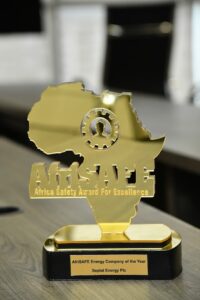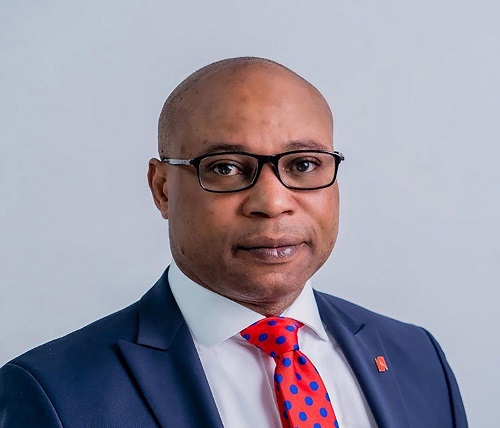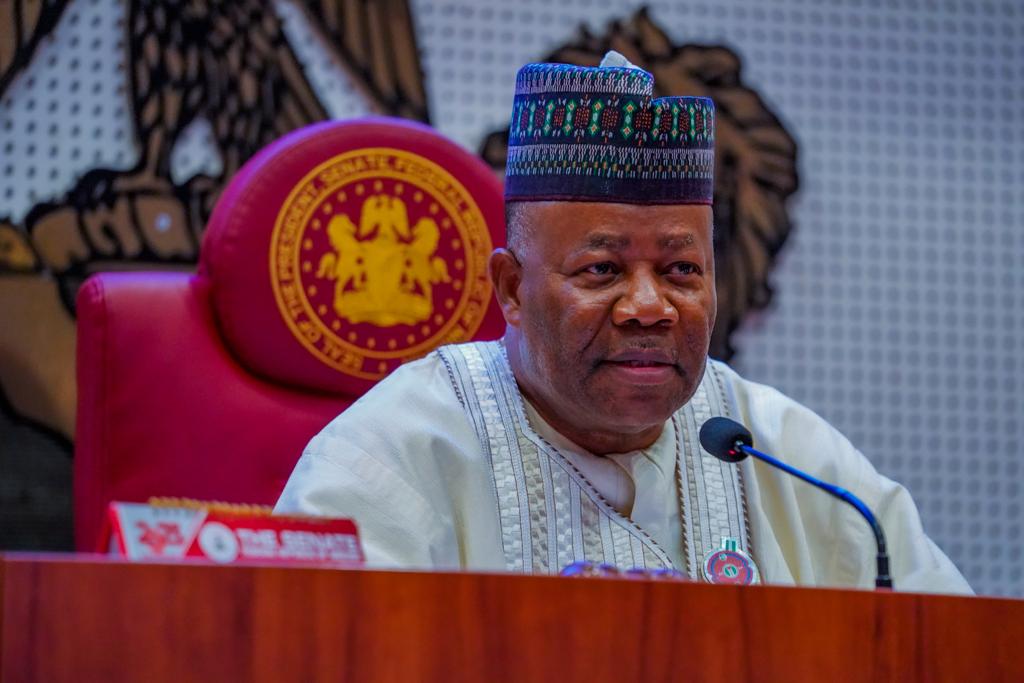Mr. Olalekan Balogun, MD, UBA Ghana.
Fitch Ratings has downgraded United Bank for Africa (Ghana) Limited’s Long-Term Issuer Default Rating (IDR) to ‘B-‘ from ‘B’ and Viability Rating (VR) to ‘b-‘ from ‘b’. The Outlook on the Long-Term IDR is Stable. A full list of rating actions is at the end of this rating action commentary.
The rating actions follow Fitch’s downgrade of Ghana’s Long-Term IDRs to ‘B-‘ from ‘B’ on 14 January 2022 (see Fitch Downgrades Ghana to ‘B-‘; Outlook Negative).
Fitch has withdrawn UBA Ghana’s Support Rating as it is no longer relevant to the agency’s coverage following the publication of its updated Bank Rating Criteria on 12 November 2021. In line with the updated criteria, we have assigned a Shareholder Support Rating (SSR) of ‘b-‘.
KEY RATING DRIVERS
IDRs AND SSR
UBA Ghana’s Long-Term IDR is now driven by our assessment of the likelihood of extraordinary support from its Nigeria-based parent, United Bank for Africa Plc (UBA Plc; B/Stable), as expressed by its SSR of ‘b-‘. The Long-Term IDR and SSR are at the same level as Ghana’s Country Ceiling of ‘B-‘. The Stable Outlook on UBA Ghana’s Long-Term IDR reflects that on UBA Plc’s Long-Term IDR.
Fitch’s view of support considers UBA Plc’s high propensity to provide support given UBA Ghana’s importance to the group’s pan-African strategy and its substantial contribution to group net income (10% in 1H21). It also considers the 91% ownership, common branding and high level of management and operational integration between UBA Ghana and the wider group.
However, UBA Plc’s ability to provide support is conditioned by its standalone creditworthiness, as captured by its Long-Term IDR. We also consider there to be a risk of regulatory restrictions in Nigeria, particularly concerning foreign-currency flows out of the country, which may constrain UBA Plc’s ability to provide timely and sufficient support.
VR
The downgrade of UBA Ghana’s VR follows the downgrade of Ghana’s Long-Term IDRs as the bank does not meet Fitch’s criteria to be rated above the sovereign on a standalone basis. Fitch considers that UBA Ghana is unlikely to remain solvent in a sovereign default scenario, due to the concentration of its operations within Ghana, reliance on sovereign-derived income and high exposure to the sovereign relative to capital, primarily through local-currency government securities (over 300% of common equity Tier 1 (CET1) capital at end-9M21).
UBA Ghana has a small market share of Ghanaian banking sector assets (3% at end-9M21), but its franchise benefits from being a subsidiary of UBA Plc. We expect market shares to increase moderately over the next two years as UBA Ghana pursues an aggressive growth strategy.
Single-borrower credit concentration is high, with the bank’s 20 largest loans representing 86% of gross loans at end-9M21 (although equivalent to just 87% of equity, due to UBA Ghana’s large capital base and a low share of loans in total assets). Our risk profile assessment also considers aggressive loan growth that may lead to seasoning risks in the event of a relaxation of underwriting standards.
UBA Ghana’s impaired loans (Stage 3 loans under IFRS 9) ratio (40% at end-9M21) is extremely high, reflecting exposure to several downstream oil companies that have struggled to service their debt due to delayed government payments. However, the loan book represents a small proportion of total assets (22% at end-9M21), with Ghanaian local-currency government securities representing over 50% of total assets. Fitch also expects the impaired loans ratio to decline in the short term as a result of write-offs, the resolution of some sizeable impaired loans and strong loan growth.
UBA Ghana has strong profitability, as indicated by operating returns on risk-weighted assets (RWA) that have averaged 10% over the past four full years. Profitability is underpinned by Ghana’s high interest rate environment but earnings are highly reliant on interest income from government securities, which represented 66% of total interest income in 2020. Operating returns on RWAs declined in 2020 (to 6.8%) and 9M21 (to 5.6%) as a result of elevated loan impairment charges (LICs) following the Bank of Ghana’s directive to UBA Ghana to gradually write-off its largest impaired loan. LICs are expected to remain elevated in 2022 and 2023 as a result of continued LICs against this impaired loan.
UBA Ghana’s CET1 capital ratio (21.4% at end-9M21) is comfortably above the minimum regulatory requirement. Net impaired loans were equal to 31% of total equity, but the largest impaired exposure is considered fully-provisioned from a regulatory capital calculation perspective, and therefore it written off will not affect the CET1 capital ratio. Fitch expects UBA Ghana’s regulatory capital ratios to remain comfortably above minimum requirements in the medium term but to decline moderately as a result of aggressive budgeted growth.
Reliance on non-deposit funding is limited (2% of total funding at end-9M21). Term deposit funding is moderate (18% of customer deposits) but depositor concentration is particularly high, with the 20 largest depositors representing 49% of customer deposits. However, large holdings of government securities and bank placements (equivalent to over 90% of total funding) ensure strong liquidity coverage that compensates for high depositor concentration.
RATING SENSITIVITIES
Factors that could, individually or collectively, lead to negative rating action/downgrade:
– A downgrade of the Long-Term IDR would stem from a simultaneous downgrade of the SSR and VR.
– A weakening in UBA Plc’s ability or propensity to provide support would lead to a downgrade of the SSR. Reduced ability to support would most likely be indicated by a downgrade of UBA Plc’s Long-Term IDR or a downward revision of Ghana’s Country Ceiling, which captures Fitch’s view of transfer and convertibility risk within Ghana.
– A downgrade of Ghana’s Long-Term IDR would result in a downgrade of the VR, given that the bank does not meet Fitch’s criteria to be rated above the sovereign on a standalone basis.
– Stronger than expected loan or balance sheet growth or material asset quality weakening that exerts significant downward pressure on capitalisation and leverage would also lead to a downgrade of the VR.
Factors that could, individually or collectively, lead to positive rating action/upgrade:
– An upgrade of the Long-Term IDR would require an upgrade of the SSR or VR.
– An upgrade of the SSR would require both an upgrade of UBA Plc’s Long-Term IDR and an upward revision of Ghana’s Country Ceiling.
– An upgrade of the VR would require a sovereign upgrade, while maintaining reasonable financial metrics.
VR ADJUSTMENTS
The Earnings and Profitability Score of ‘b-‘ has been assigned below the ‘bb’ category implied score due to the following adjustment reason: Revenue diversification (negative).
BEST/WORST CASE RATING SCENARIO
International scale credit ratings of Financial Institutions and Covered Bond issuers have a best-case rating upgrade scenario (defined as the 99th percentile of rating transitions, measured in a positive direction) of three notches over a three-year rating horizon; and a worst-case rating downgrade scenario (defined as the 99th percentile of rating transitions, measured in a negative direction) of four notches over three years. The complete span of best- and worst-case scenario credit ratings for all rating categories ranges from ‘AAA’ to ‘D’. Best- and worst-case scenario credit ratings are based on historical performance. For more information about the methodology used to determine sector-specific best- and worst-case scenario credit ratings, visit https://www.fitchratings.com/site/re/10111579
REFERENCES FOR SUBSTANTIALLY MATERIAL SOURCE CITED AS KEY DRIVER OF RATING
The principal sources of information used in the analysis are described in the Applicable Criteria.
PUBLIC RATINGS WITH CREDIT LINKAGE TO OTHER RATINGS
UBA Ghana’s Long-Term IDR is driven by UBA Plc’s Long-Term IDR.
ESG CONSIDERATIONS
Unless otherwise disclosed in this section, the highest level of ESG credit relevance is a score of ‘3’. This means ESG issues are credit-neutral or have only a minimal credit impact on the entity, either due to their nature or the way in which they are being managed by the entity. For more information on Fitch’s ESG Relevance Scores, visit www.fitchratings.com/esg














